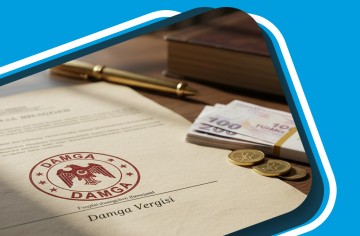
Emlakçı (Real Estate Agent) – Turkey Property Guide

Emlakçı is a Turkish term for a real estate agent or property broker. In Turkey, an emlakçı acts as an intermediary between buyers and sellers (or landlords and tenants) in property transactions. They assist with listings, negotiations, paperwork, and legal compliance, often working through licensed agencies called emlak ofisleri (real estate offices).
Their services typically include property valuations, marketing, contract preparation, and coordinating viewings. While not mandatory for private sales, most foreigners rely on an emlakçı due to language barriers and complex local regulations.
| Turkish Term | English Equivalent | Notes |
|---|---|---|
| Emlakçı | Real estate agent | Most common term for licensed professionals. |
| Emlak danışmanı | Real estate consultant | Formal title for agents with advisory roles. |
| Emlak komisyoncusu | Property broker | Emphasizes commission-based transactions. |
| Gayrimenkul danışmanı | Property advisor | Used for high-end or commercial real estate. |
| Satılık evi bulan kişi | House finder | Informal, often for unlicensed intermediaries. |

A licensed real estate agent in Turkey.
An emlakçı is a Turkish real estate agent or broker licensed to facilitate property transactions. They act as intermediaries between buyers and sellers, handling tasks like property listings, negotiations, and paperwork. Unlike informal agents, licensed emlakçılar must comply with Turkish regulations, including registration with the Trade Registry Gazette.
Commission-based, usually 2-4% of sale price.
In Turkey, emlakçılar typically earns a commission calculated of the property’s sale price. Commission rates are negotiable but must be agreed in writing. Some agents charge flat fees for services like property management or legal assistance.
Yes, but enforcement varies by region.
Legally, emlakçılar in Turkey must register their business and obtain a Trade Registry Certificate. However, unlicensed agents still operate, especially in tourist-heavy areas. Licensed agents are required to display their certification in their office. To verify an agent’s legitimacy, check the Turkish Trade Registry Gazette (Ticaret Sicil Gazetesi) or request their tax number.
Yes, but residency and business permits are required.
Foreigners can work as emlakçılar in Turkey but must first obtain a work permit and residency. They also need to register a business (e.g., as a limited company) and comply with Turkish tax laws.
Emlakçı = agent; emlak ofisi = agency.
An emlakçı is an individual real estate agent, while an emlak ofisi is a licensed agency (office) employing multiple agents. Agencies must be registered with the Turkish Chamber of Commerce and display their trade license. Independent emlakçılar may operate alone but often collaborate with agencies for broader property access.
They assist but don’t transfer ownership.
Emlakçılar can guide buyers through the tapu (title deed) process but cannot legally transfer ownership—that’s done at the Land Registry Office (Tapu Dairesi). Their role includes preparing documents, scheduling appointments, and sometimes translating. Always verify the tapu details yourself or with a lawyer before signing.
No, but they must disclose known issues.
Turkish emlakçılar are not liable for hidden property defects unless they knowingly withhold information. Their duty is to provide accurate listings and disclose visible issues (e.g., structural damage). Buyers should conduct independent inspections or hire a surveyor. Legal disputes over defects are between the buyer and seller, not the agent.
Check licenses, reviews, and professional associations.
To find a trustworthy emlakçı, verify their trade license via the Turkish Trade Registry. Read reviews on platforms like Google Maps or Sahibinden as well as Social Media Platforms. Avoid agents who demand upfront fees or lack a physical office.
No, they’re not qualified for legal/tax guidance.
Emlakçılar in Turkey cannot offer legal or tax advice—they’re not lawyers or accountants. Their role is limited to property transactions. For issues like tapu taxes, residency permits, or inheritance laws, consult a Turkish attorney or certified tax advisor. Some agencies partner with lawyers for referrals.
Property details, ID copies, and contract drafts.
A licensed emlakçı should provide:
• Property title deed (tapu) copy (to verify ownership).
• Seller’s ID/passport and tax number.
• Ferdi iskan (Both ferdi & ön iskan).
• Draft sales contract (in Turkish; request a translation).
Avoid agents who refuse to share these or any other document relevant for the property. Also avoid agents who try to pressure you to sign without review.
Also read


Havuz (Swimming Pool) – Meaning in Turkish Real Estate

Kat mülkiyeti kanunu (Condominium Ownership Law)

Asansör (Elevator) – What It Means in Turkish Real Estate

Bina (Building) – Understanding Turkish Real Estate Terms

Damga vergisi (stamp duty) in Turkey – explained for buyers

Emlak (Real Estate) in Turkey – A Simple Explanation for Foreign Buyers

Emlakçı (Real Estate Agent) – Turkey Property Guide

Hisseli tapu (shared title deed in Turkey)
